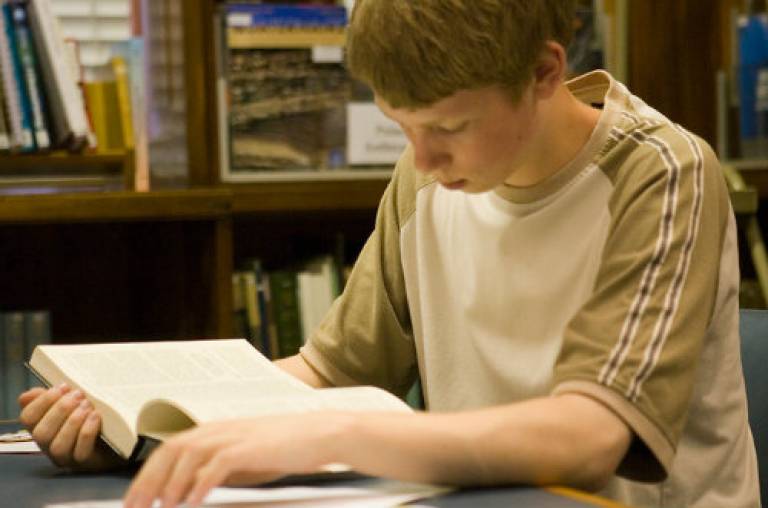Using rare books and archives to support the Connected Curriculum
Dr Tabitha Tuckett (UCL Library Services) explains how undergraduates can establish research skills through studying rare books and manuscripts.

19 May 2015
Students tend to approach the primary resources of rare books and archives at an advanced stage in their studies or often at post-doctoral level, only to find they lack the skills to identify and handle the material and then to develop imaginative, realistic and relevant research projects around that material.
The result is frustration for the researcher and strain on resources for library staff.
Teaching students how to use archives and rare books
In response to these issues, UCL Library Special Collections has been working with academic staff to develop modules in which group research projects using archives and rare books are integrated at a much earlier stage in students’ careers, even as early as first-year undergraduate level.
Teaching is a core part of UCL Special Collections; collections are often ‘donated’ in order to assist with teaching students skills relevant to a range of different disciplines.
The small team also help academic staff embed research skills within their curricula through around 25 and 55 classes per year.
There are, broadly, three different sorts of support:
- teaching individual classes within a module (this allows the team to spread across a diverse range of programmes)
- hosting classes for staff who would like to use collections within one of their sessions
- working with academics to develop a module or individual sessions
A key research skill
For students, learning key research skills at an early stage is a useful way to become familiar with the process and skills required to undertake more advanced research studies as they progress through academia.
Studying rare books and manuscripts also allows student to develop their ability to formulate appropriate research questions and to communicate their findings successfully to specific audiences.
The team’s sessions have included various practical elements including delivering individual reports, working on group projects, and hosting virtual exhibitions.
Developing researchers early
Furthermore, it is advantageous that students are able to get a taste for postgraduate work early on and for some, they may get a publication out of their work in the collections.
Participants have also come in to contact with staff and experts outside of their studies including conservators, archivists, rare books librarians, cataloguers, exhibition professionals and photographers.
Many have also contributed towards public-engagement activities, volunteering programmes, and research projects run within and outside Special Collections.
One such example within the Arts and Sciences BASc programme involves second-year undergraduate students working on a module for which they must write a report on an object they are assigned.
Although the students have different perspectives, they must work together to produce a research report as well as an online exhibition. This also involves collaborating and giving an oral presentation on an agreed theme which gives them the opportunity to work in a digital context – it encourages active group work and to think cortically about how to present in this way.
Honing research skills early on has been beneficial for staff also as there is less strain on services and support at a later date and in the long term this assists with better allocating their time and resources.
 Close
Close

